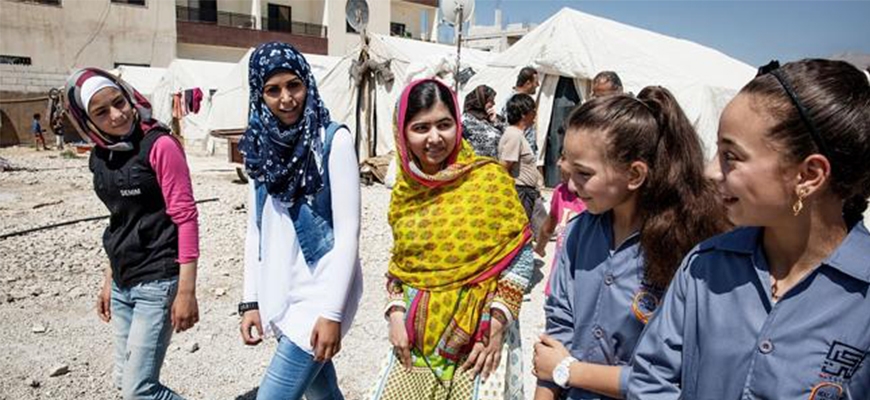
27 Jul 2015
Born with a deformed left foot, eight-month-old Wael has yet to attempt his first faltering step. google_ad_section_end
Instead he lies in his mother’s lap in their makeshift two-room concrete shack on the outskirts of Baalbek, in Lebanon’s Bekaa Valley.
Wael’s chances of receiving treatment for his deformity are slim. His parents, Thaer, 26, and Asmaa, 19, fled from Syria to escape the civil war but have found only hardship and uncertainty in their adoptive homeland.
Thaer, who earns just $90 a week as a plumber, cannot afford the corrective surgery their son needs. Nor can he expect any help from the state.
As far as the Lebanese authorities are concerned, Wael does not exist. Although his parents married in January last year in Lebanon, they have not been able to negotiate the complicated and costly bureaucratic procedure required to register their son.
“I can barely buy nappies and baby food with what I make, let alone incur all the costs of registrations and back residency fees,” said Thaer.
Wael is among an estimated 36,000 children classified as stateless, born in Lebanon to Syrian refugees such as Thaer and Asmaa.
Growing up without proper papers, they will not be eligible for healthcare or schooling or be allowed to cross the border with their parents. Nor, later in life, will they be able to get a job or themselves marry.
The emergence of this army of stateless children is adding to the woes of many of the 1.17 million Syrians who have sought refuge in Lebanon, where they now make up almost one in four of the population.
In Baalbek, one of a cluster of places where they have settled, the Syrians eke out a poverty-stricken life in summer heat that regularly touches 35C.
“In Syria life was much better,” lamented Ayman, a father of two. “We had free schools, education and medical services. Who cared who was leader? At least we had security. We had a life, a dignified one. Now look at us.”
Ayman pointed to an abandoned classroom divided by a curtain, home to his wife Suzan, 19, and their golden-curled daughters Sahar, 1, and Miya, two months, asleep side-by-side on a mattress.
The couple used to live in Ghouta, a pleasant garden suburb of Damascus, the Syrian capital, since transformed into a war zone.
Ayman, who rarely works, lives on aid and borrowed money. When Suzan became pregnant a second time, they considered an abortion. “But we couldn’t kill the life that was already forming, we cannot defy God’s will,” he said.
“And what if this war lingers for years to come, 10 or 20 years?”
More than 220,000 people have been killed and four million sent into exile by the Syrian civil war. Into its fifth year, it threatens to explode into Lebanon, a small multi-religious state still scarred by its own civil war between 1975 and 1991. People remember the decades of conflict created by an influx of Palestinian refugees after the creation of Israel in 1948.
As a result, resentment and fear of the Syrian newcomers have grown, intensified by battles between Sunni and Shia militias and jihadist attacks on the Lebanese army.
For Hamida, a mother of three at 24, the flight into Lebanon has brought only misery and deprivation. Her sons Mohamed, 7, and Gaith, 3, have no school or nursery to attend. Her daughter Shahed, 1, is stateless and does not even have a birth certificate because she was born abroad.
“I used to watch the school playground from our windows and dreamt with my husband of the day we would send our kids there,” she said.
With school places scarce, many of the children of Syrian exiles haunt the streets of the cities of Lebanon. Peddling goods or shining shoes, they are vulnerable to abuse and exploitation.
Just as the crisis is deepening, the amount of aid on offer is falling. The UN says 70 per cent of refugee households live on less than the poverty line of $5 a day; half do not have enough money to buy a basic basket of goods.
The World Food Program says it needs $170 million to feed people over the next few months. A global appeal for $6 billion, meanwhile, has raised just a quarter of its target
While nations argue and diplomacy is stalled, many refugees are close to despair at the misery of their new life in Lebanon.
“It is like living in a large prison,” said Ayman.

 عربي
عربي